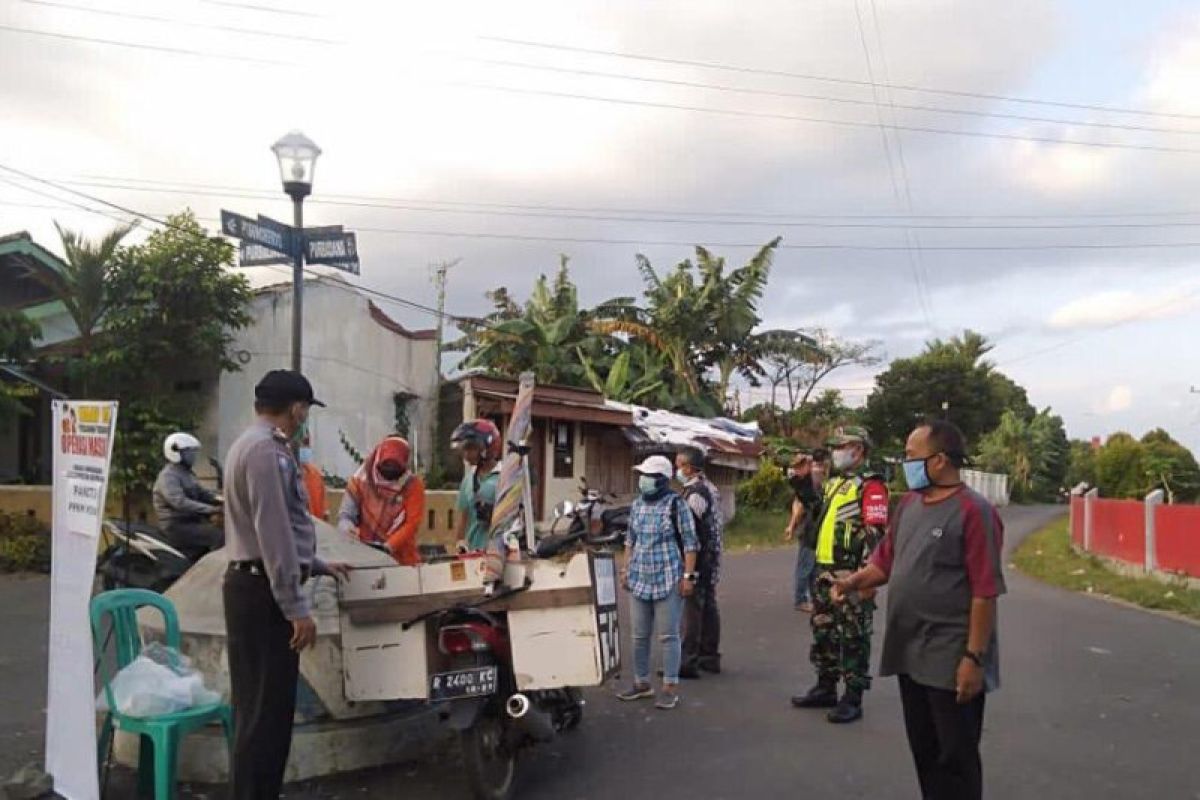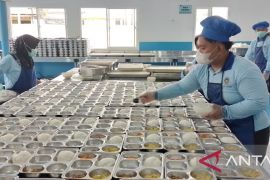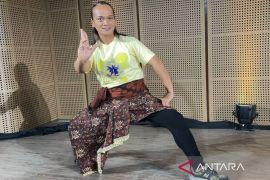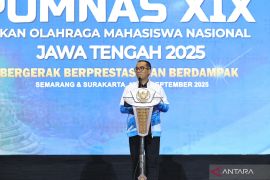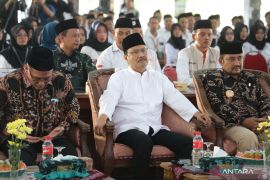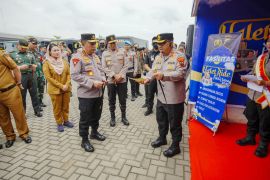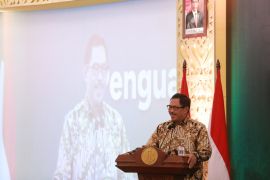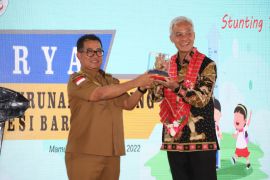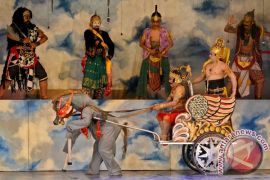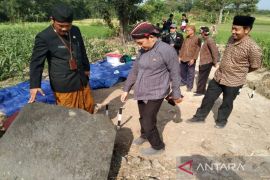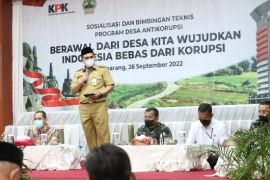One of the programs that had been created was "Jogo Tonggo," which means taking care of neighbors, wherein members of society were invited to fight and control the COVID-19 pandemic together.
The pulse of this movement was gotong royong, or cooperation. This is because nevertheless, society itself is at the forefront of battling the virus. The role and involvement of society is the main factor in the program.
The Central Java provincial government assessed that the transmission of COVID-19 must be fought together in a systematic, structured, and detailed manner while still paying attention to the people's health.
The regional government also prioritized environmental conductivity and economic conditions of the residents by ensuring the fulfillment of needs of staple food and goods.
Starting from the power of local wisdom and creativity as well as geographic potentials in the respective regions, the Central Java administration had formed the Jogo Tonggo Task Force in 2020.
Related news: Central Java governor reminds regional heads about vaccine expiry date
Central Java Governor Ganjar Pranowo stated that the prevention of COVID-19 must put society first in the row, supported by the government and all parties.
He referred all parties to higher education institutions, corporations, banking institutions, financial institutions, professional organizations, mass media, social media, non-governmental organizations, sectoral organizations, mass organizations, and other stakeholders.
The Jogo Tonggo Task Force has the main task that is divided into the four sectors of health, economy, society, and safety. Its task must be conducted on target and appropriately.
This task force was not formed from scratch, as the heads of hamlets (RW), heads of neighborhood units (RT), and local residents are included in the organizational structure.
During its duties, the task force needs to strengthen synergies regarding social group activities, such as Karang Taruna, a youth organization; Dasa Wisma, the Family Welfare Empowerment (PKK) work program; Posyandu, integrated health service posts; and the residents.
In the health sector, the task force will encourage, monitor, and ensure that health protocols in its region have run properly and correctly. It also continues to conduct educational socialization, so that citizens remain disciplined in following health protocols.
Related news: Central Java governor wants vaccination for children to be expedited
Furthermore, the Jogo Tonggo Task Force is tasked with registering people that enter and leave villages and transport those showing COVID-19 symptoms to the nearest health facilities.
If there are residents confirmed to be infected with COVID-19 but showing no symptoms, then the task force will direct them to conduct self-isolation for 14 days and remind other residents to continue to remain vigilant but also advise them not to express negative stigma toward those who are infected.
In order to maintain community discipline, the Jogo Tonggo Task Force always ensures the availability of handwashing kits, sprays disinfectant regularly, and reminds people to always wear masks and maintain physical distance.
In the economic field, the task force ensures that the basic needs and food availability of residents can be fulfilled in their respective hamlets. It also strives to help residents not having sufficient food supplies.
In 2021, the collaboration for implementing the Jogo Tonggo program was deemed effective in reducing the number of confirmed COVID-19 cases in Kudus District, Central Java, which had experienced a surge of up to 30 folds in a week.
Kudus District Head Hartopo noted that the collaboration was conducted from the smallest to the highest level, from RT to the regional leadership coordination forum (Forkopimda), to report positive cases every hour and collect donations to accelerate the handling of the outbreak.
"In Jogo Tonggo, RT collects donations for the villages. The update from the level of RT is carried out every one to two hours. That makes our work easier," Hartopo stated.
Related news: Schools in Central Java must implement health protocols: governor
Role of society
A sociologist from Jenderal Soedirman University at Purwokerto, Tyas Retno Wulan, stated that during the COVID-19 pandemic, people should care for each other, as togetherness is an important key in dealing with the pandemic.
Moreover, COVID-19 is not just a clinical disease but also a communal disease, so its treatment must be done together.
Wulan cited as an example that when a person is infected with COVID-19, it can have an impact on his or her family members, co-workers, and people around him or her. Thus, handling efforts must be community-based in preventing transmission together.
In society's life order, the movement of caring for each other and reminding one another about health protocols is essential, as the COVID-19 pandemic has not only had an impact on the health aspects but also on economic, social, and political matters, she remarked.
Through comprehensive handling and involvement of several parties to care and contribute in real ways, the chain of virus transmissions can be broken, and economic and social turmoil can be minimized.
An epidemiologist from Jenderal Soedirman University, Dr Yudhi Wibowo, stated that Jogo Tonggo is a program rich in local wisdom, as it prioritizes mutual cooperation and togetherness.
According to Wibowo, the more parties are involved, the stronger the pandemic controlling efforts will be, and the results will be more optimal, as the desire to help one another is a powerful weapon in the fight against COVID-19.
The epidemiologist explained that Jogo Tonggo is one of the several programs in Indonesia that puts forward local knowledge based on the principles that are followed by the Indonesian nation, which is Pancasila and Bhineka Tunggal Ika, or Unity in Diversity.
This form of good practice is interesting to be discussed at the global level on account of the fact that in 2022, Indonesia holds the presidency of the G20 forum, he noted.
The forum will certainly be able to strengthen Indonesia's role in global health, especially amid the COVID-19 pandemic, as health challenges are a priority issue and a common concern for countries worldwide.
Local wisdom in each country in the world can be a key to building and developing the global health architecture. Hence, the world can be more prepared in facing the health crises.
Related news: Central Java to commence vaccinations for children aged 6--11 soon
Editor: Suharto
Copyright © ANTARA 2022
